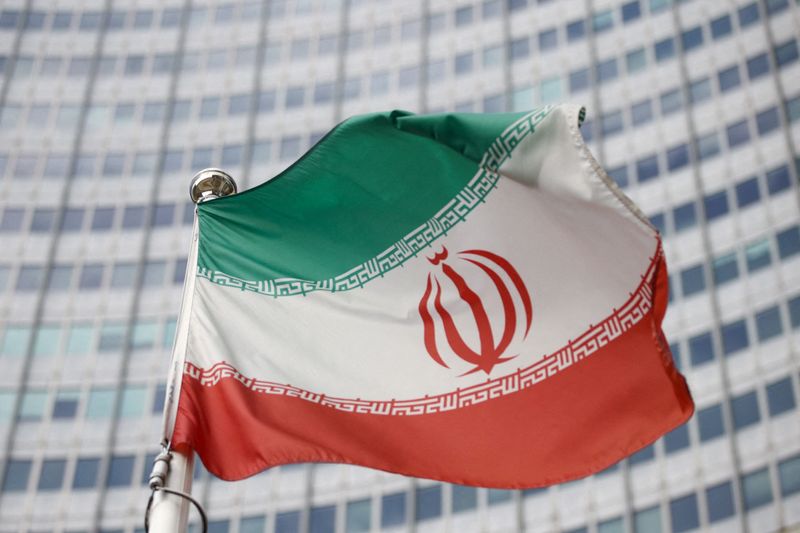By Parisa Hafezi and Francois Murphy
VIENNA (Reuters) - The head of the International Atomic Energy Agency will visit Tehran on Saturday, the agency confirmed on Thursday, raising the prospect of progress on one of the last thorny issues blocking a revival of the 2015 Iran nuclear deal.
The visit by the U.N. nuclear watchdog's director general was reported overnight by the Nournews news agency affiliated with Iran's top security body as negotiators in Vienna seek to restore U.S. and Iranian compliance with the deal.
"Director General Rafael Mariano Grossi will travel to Tehran for meetings with senior Iranian officials on Saturday. They will discuss outstanding safeguards issues with a view to address(ing) them," the IAEA said in a statement.
A major sticking point in the talks is that Tehran wants the issue of uranium traces found at several old but undeclared sites in Iran to be closed even though Western powers say that is a separate issue to the deal, which the IAEA is not a party to, several officials have told Reuters.
The IAEA has been seeking answers from Iran on how the traces got there - a topic often referred to as "outstanding safeguards issues".
"If Grossi's trip could help the agency and Tehran to reach a roadmap to resolve existing safeguard issues, it can help revival of the nuclear deal in Vienna," Nournews said in its report, without citing a source.
The IAEA has repeatedly reported that Iran has failed to give satisfactory explanations on the origin of the traces of processed uranium. Those traces suggest there was nuclear material there that Iran did not declare to the agency.
The report of Grossi's trip coincides with the final stages of negotiators trying to salvage the 2015 deal between six world powers and Iran that imposed restrictions on Tehran's nuclear activities in exchange for the lifting of sanctions.
Israeli Prime Minister Naftali Bennett said he spoke with Grossi ahead of his trip about the unexplained traces. Israel opposes a deal revival with its arch-foe Iran, which it sees as an existential threat were it armed with nuclear weapons.

Former U.S. President Donald Trump pulled the United States out of the pact in 2018 and reimposed tough economic sanctions. That led Iran to breach many of the deal's restrictions, which were designed to make it harder for Tehran to obtain the fissile material for a nuclear bomb. Iran denies any such ambition.
Three Iranian officials close to the talks said a wide array of sanctions, including those keeping Iran from exporting its oil and those on Supreme Leader Ayatollah Ali Khamenei and President Ebrahim Raisi, were to be removed if the 2015 pact was revived.